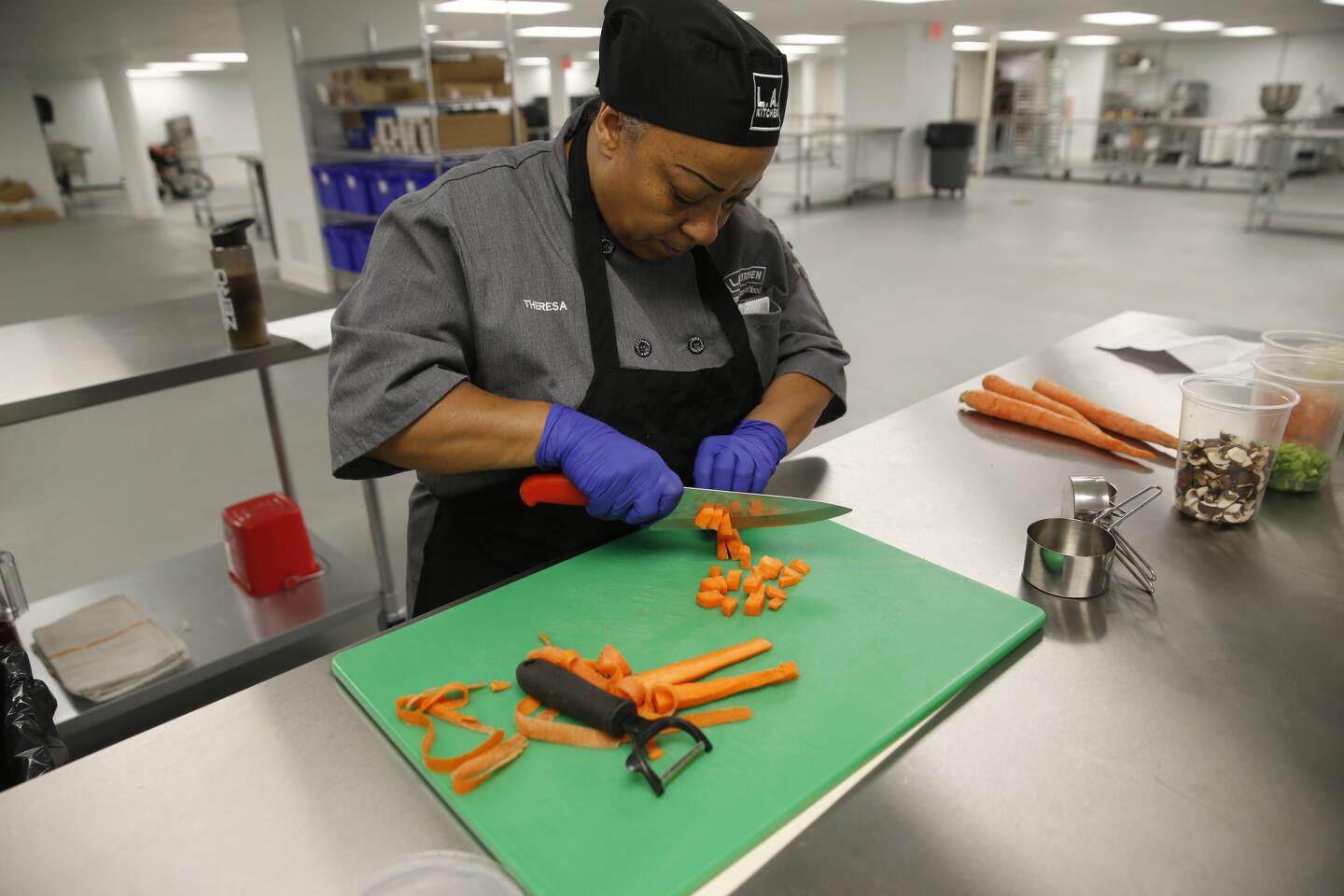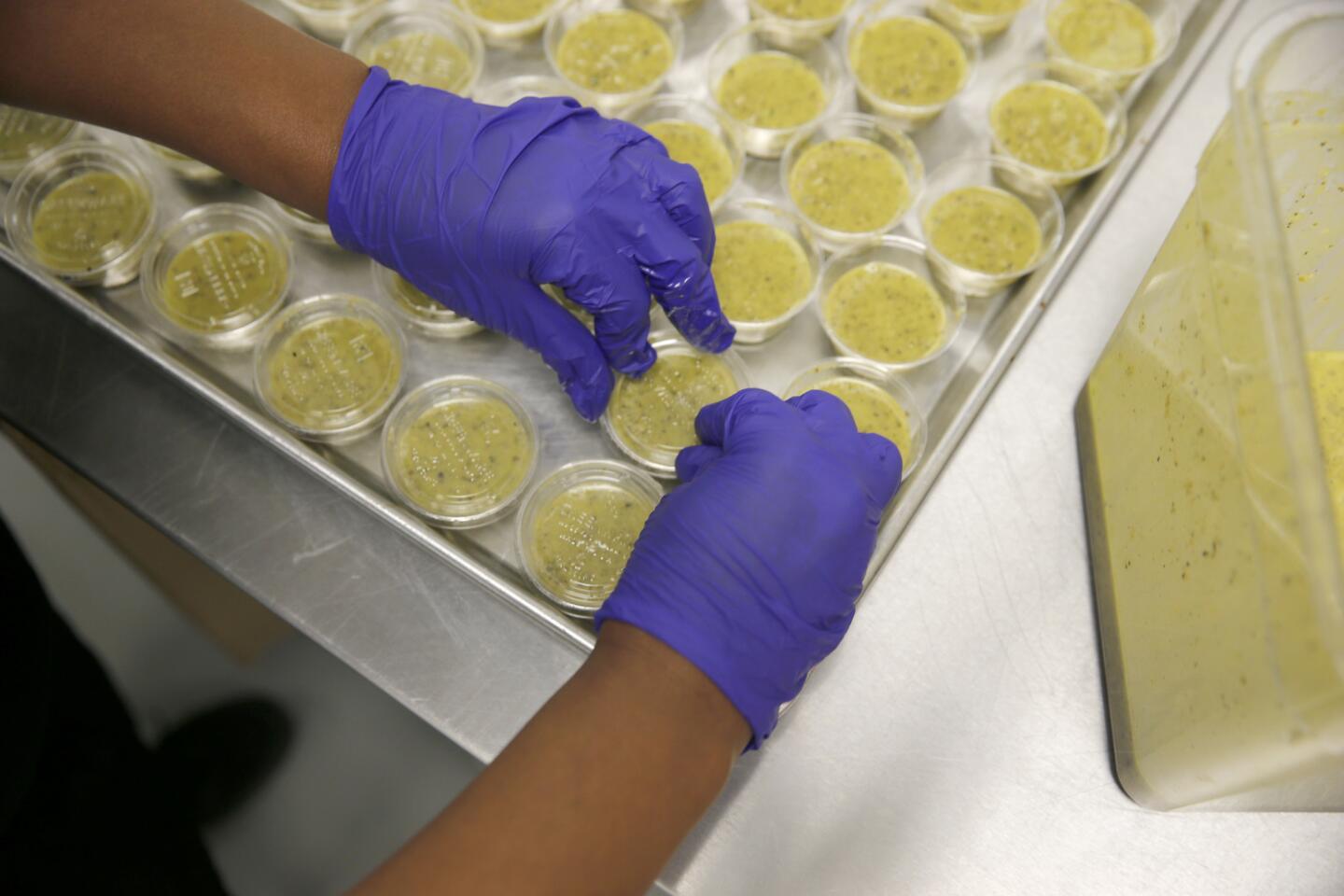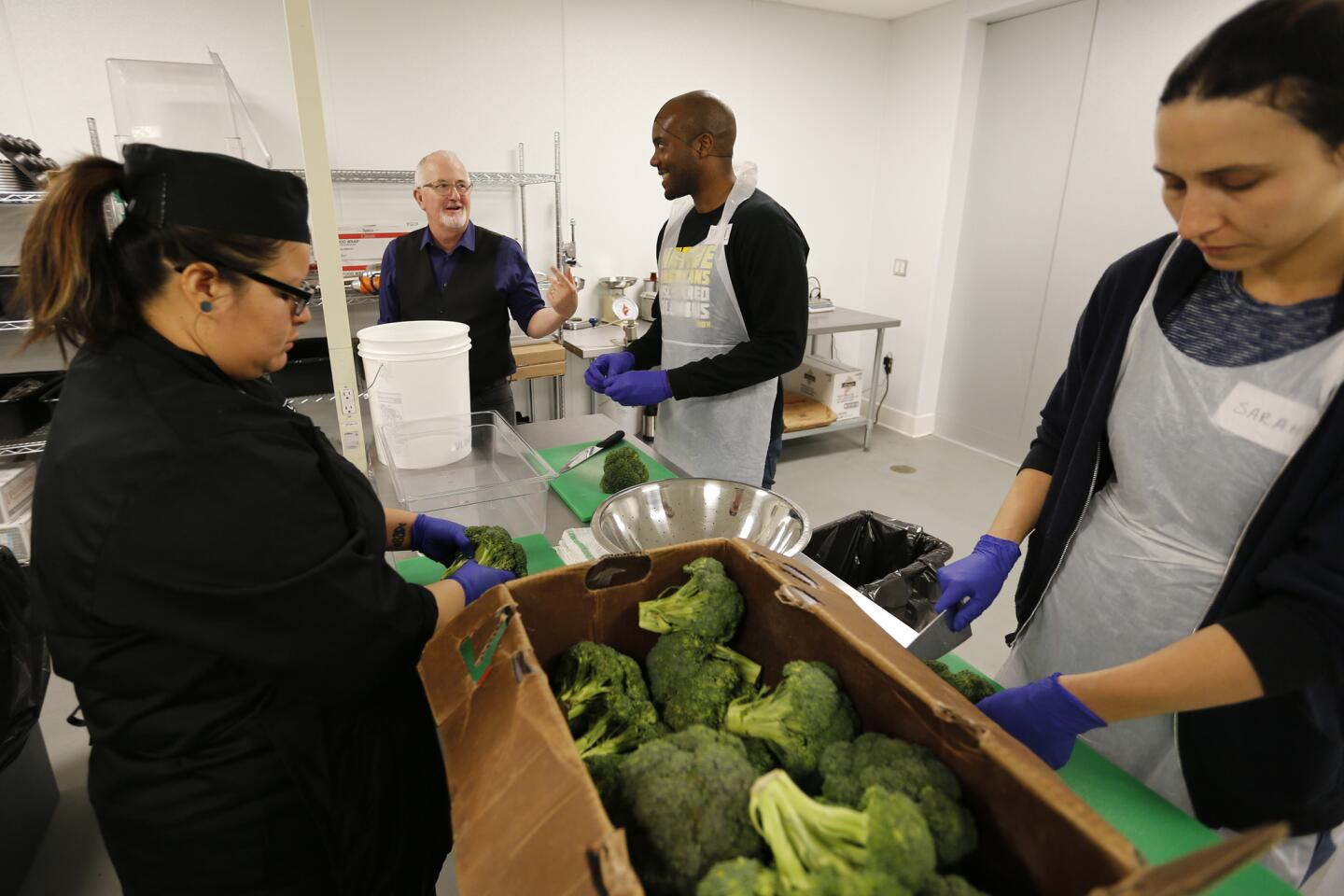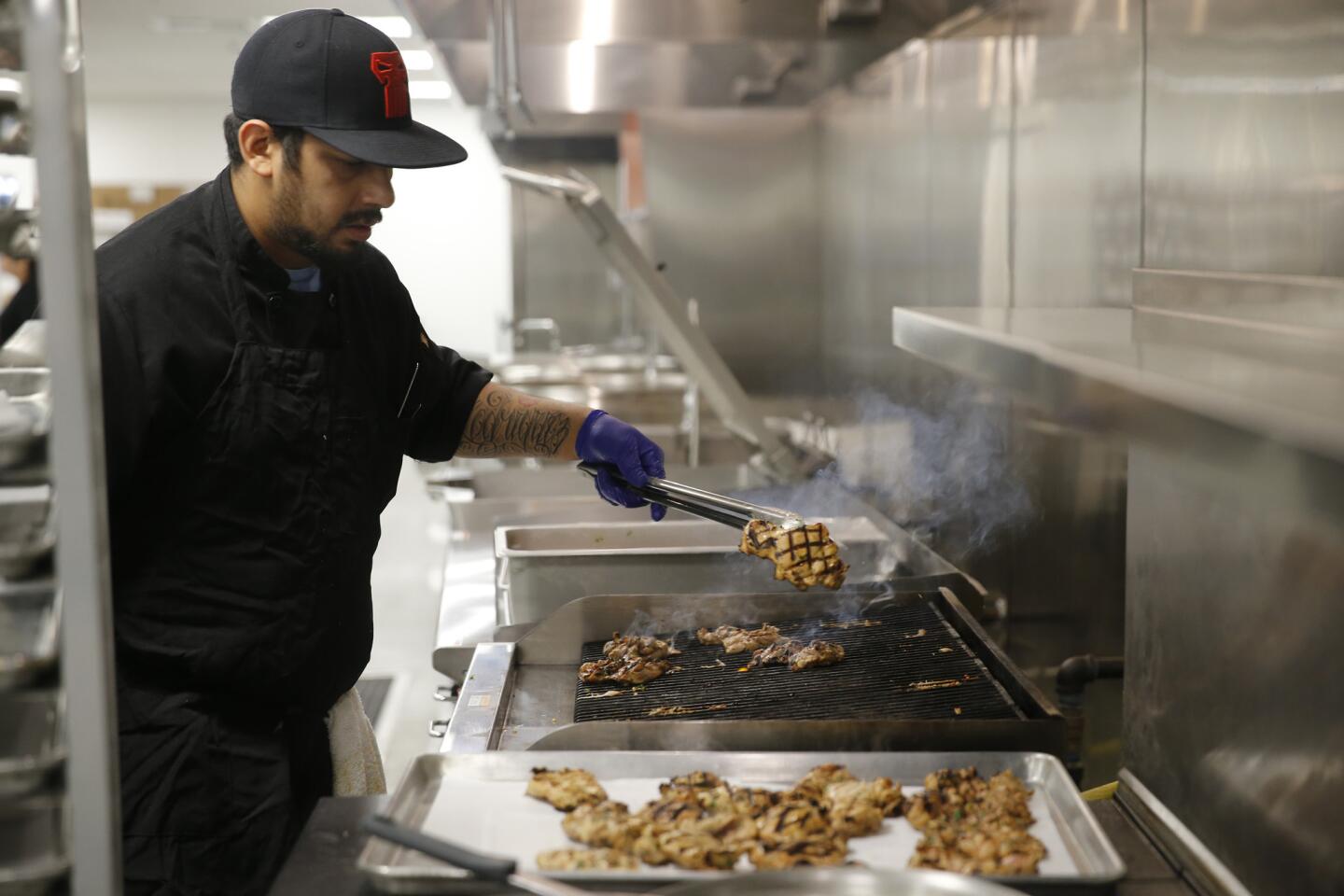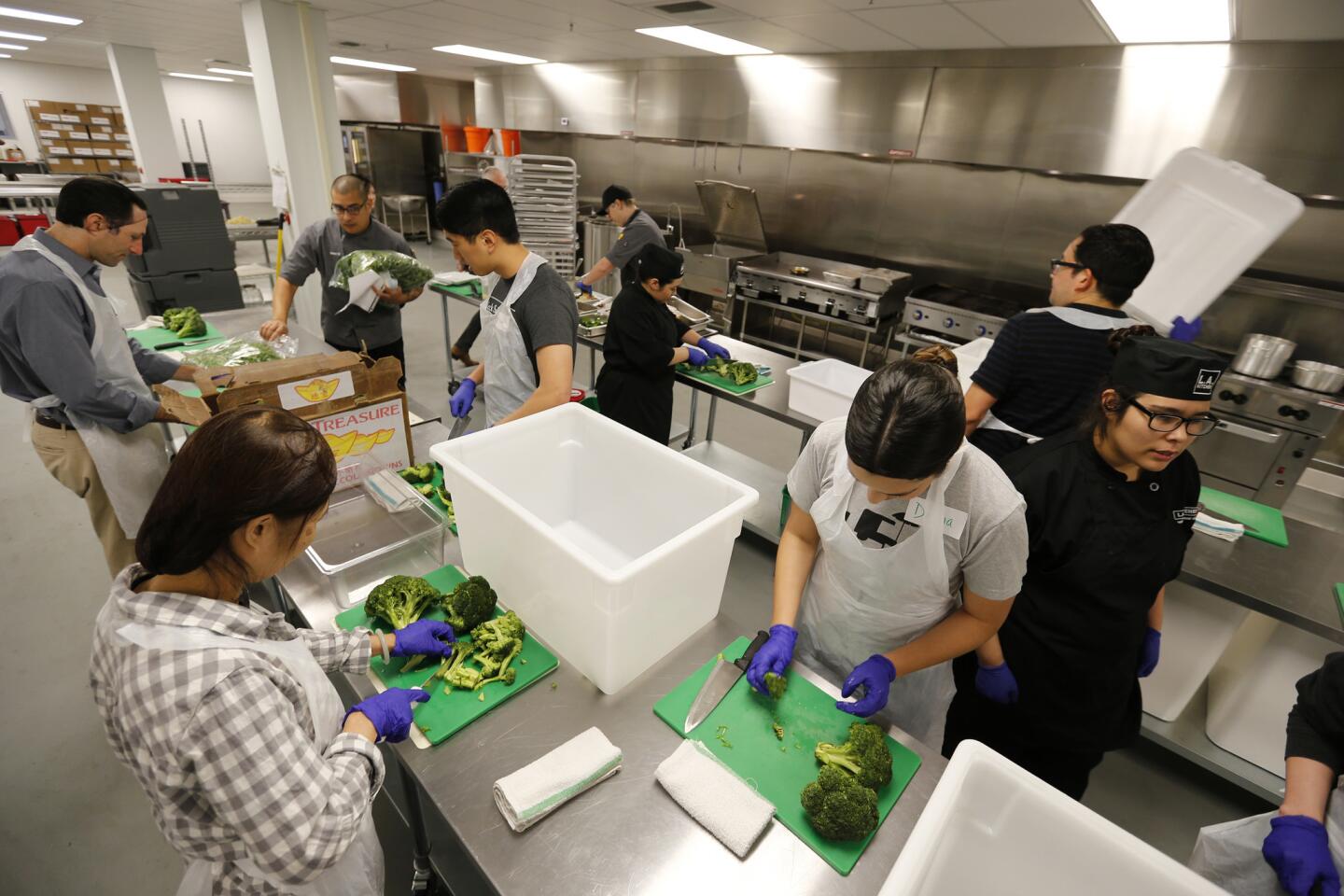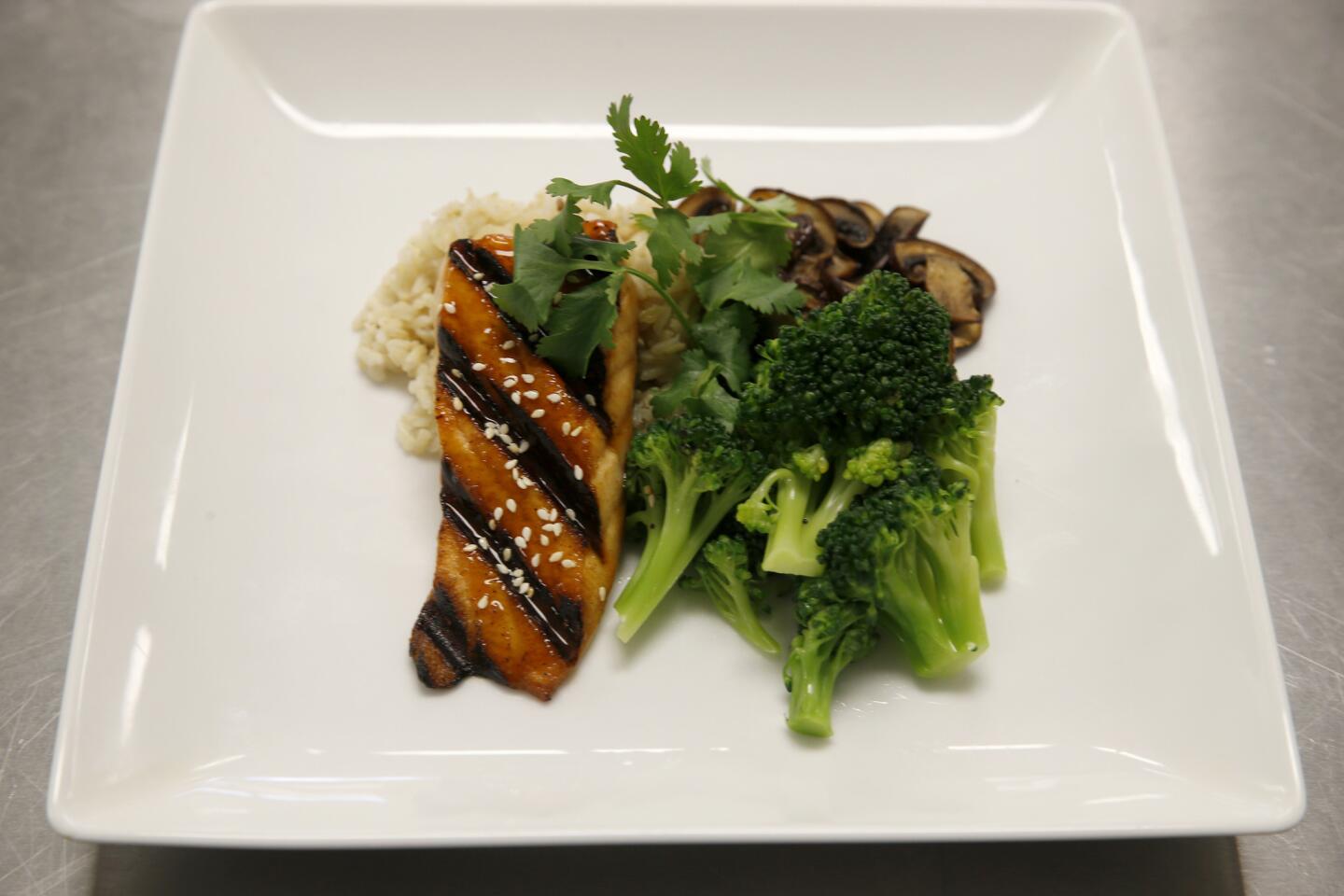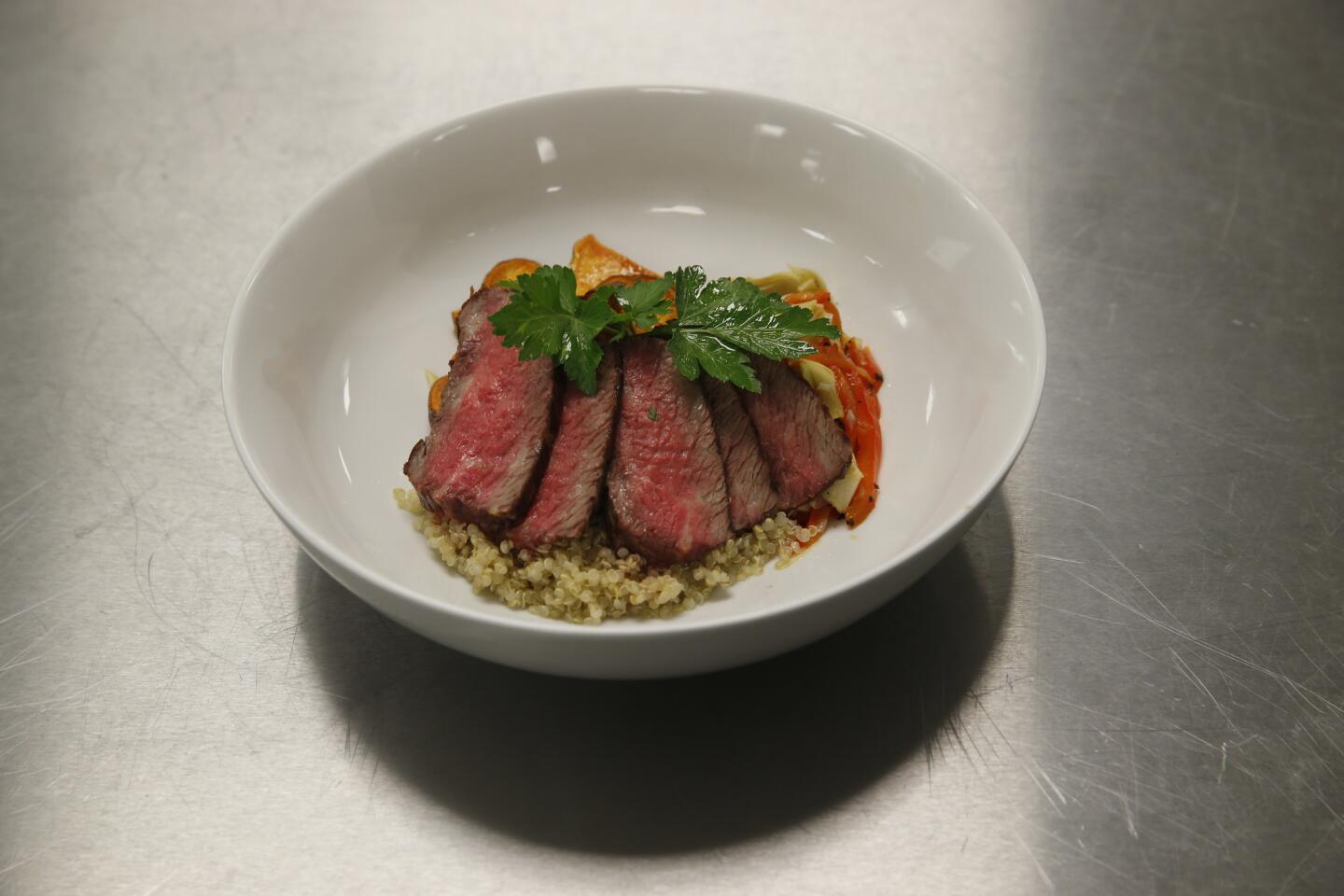L.A. Kitchen gives its students the ingredients for a better life
- Share via
The 20,000-square-foot Lincoln Heights kitchen is humming with the sounds of pre-service food prep. While the chef de cuisine shapes cheese quenelles for a pasta dish, an apprentice washes arugula, then whisks together a balsamic vinaigrette. At the heart of the room, a battalion of busy cooks cuts broccoli on a stainless steel worktable.
This is not a restaurant kitchen. This is L.A. Kitchen, a nonprofit facility located in L.A.’s Eastside that recovers fresh fruit and vegetables to be used in a culinary arts job-training program for former inmates and young adults leaving the foster care system.
Robert Egger, the 57-year-old nonprofit pioneer and speaker, founded L.A. Kitchen in 2013 with help from a $1-million start-up grant from AARP, which was the largest single grant in the foundation’s history. Egger previously ran the successful D.C. Central Kitchen (DCCK) for 24 years. DCCK opened in 1989 and has since run a groundbreaking culinary job-training program and has also prepared millions of meals for low-income and at-risk Washington, D.C., residents.
Egger is the author of “Begging for Change: The Dollars and Sense of Making Nonprofits Responsive, Efficient and Rewarding for All,” which was published in 2004 and won the McAdam Book Award for best nonprofit management book in 2005. In 2004 he won the James Beard Foundation Humanitarian of the Year award.
L.A. Kitchen’s social enterprise (for-profit business) is called Strong Food. It employs some L.A. Kitchen culinary program graduates and works hard to ensure all other graduates are placed in jobs. Strong Food also buys food and competes for food service contracts, which include serving healthy meals to low-income seniors.
Volunteers for L.A. Kitchen sign up via the website and gather several days a week (at least 20 volunteers per day) to help chop and prep produce that goes into meals for partner agencies, including one for a new senior program in Echo Park and one with the Mexican American Opportunity Foundation, which serves northeast L.A. “We’re excited that our first major contract for meals [750 a day] will be in the community where L.A. Kitchen is located,” Egger says. The senior meals are vibrant, restaurant-quality and have included grilled tri-tip beef, Scottish salmon and vegetarian whole-wheat penne.
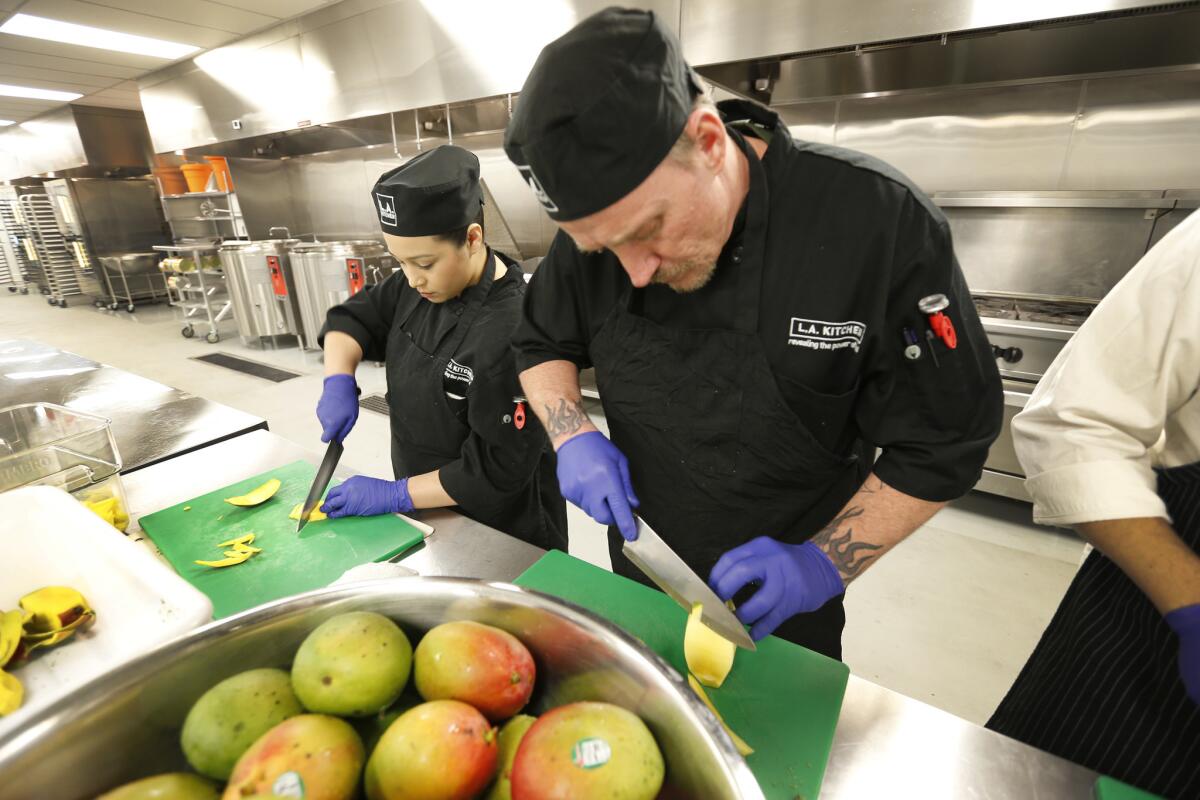
L.A. Kitchen students Monique Najera, left, and Dale Greenhagen slice mangos.
L.A. Kitchen’s first hire from the culinary program (Class 1 in 2014) was 53-year-old Theresa Farthing. She spoke about her difficult past as she chopped vegetables near the classrooms. Farthing spent years dealing with homelessness, drug abuse and was also incarcerated at Lynwood women’s jail. “L.A. Kitchen gave me the opportunity to give myself a second chance,” Farthing says. As head cook, she works with new students.
During the 15-week culinary program, students held internships at various L.A. restaurants, including Ray Garcia’s highly regarded Broken Spanish in downtown Los Angeles. Garcia (who also owns B.S. Taqueria) first learned about L.A. Kitchen from José Andrés, the Spanish chef who serves as L.A. Kitchen’s board co-chairman and also chairman emeritus of D.C. Kitchen. Andrés owns several restaurants around the country, including the Bazaar in Beverly Hills. “Robert is a visionary,” Andrés says. “He doesn’t see hunger as a problem but as an opportunity — to improve the lives of many, one citizen at a time.”
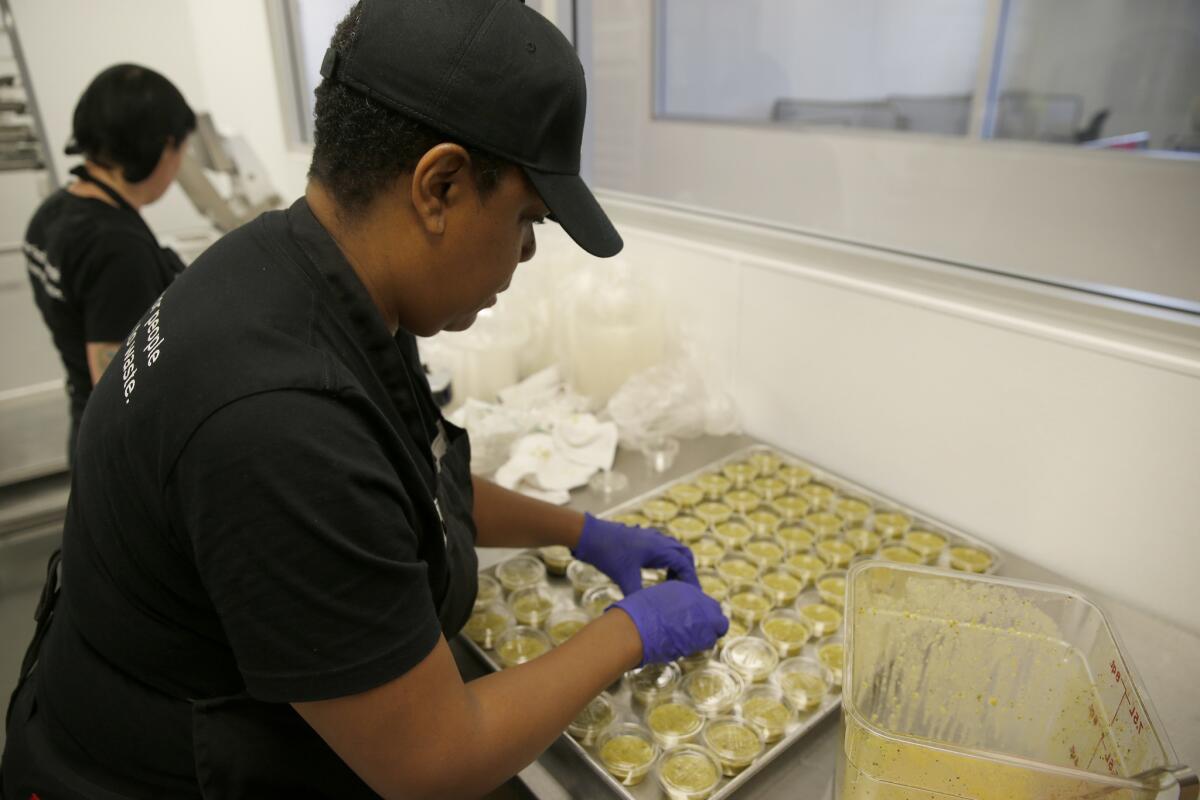
Dana Harris packages poblano vinaigrette dressing to go with meals for the elderly.
Garcia got involved after doing a little research and discovered that the L.A. Kitchen location was just two miles from where he grew up. “For me this was a sign. It was the perfect opportunity to help give back to my community while at the same time helping my restaurants. L.A. Kitchen works hard to not just place somebody with a job, but to set them up for long-term success.”
On April 14, 10 students from L.A. Kitchen’s 15-week culinary program graduated at a ceremony at L.A. River Center and Gardens and all are now employed at L.A.-area businesses, including Kitchen Mouse, Tender Greens, Taste of Pace, Wexler’s, BiBi’s Cafe, Mighty Humans and Strong Food.
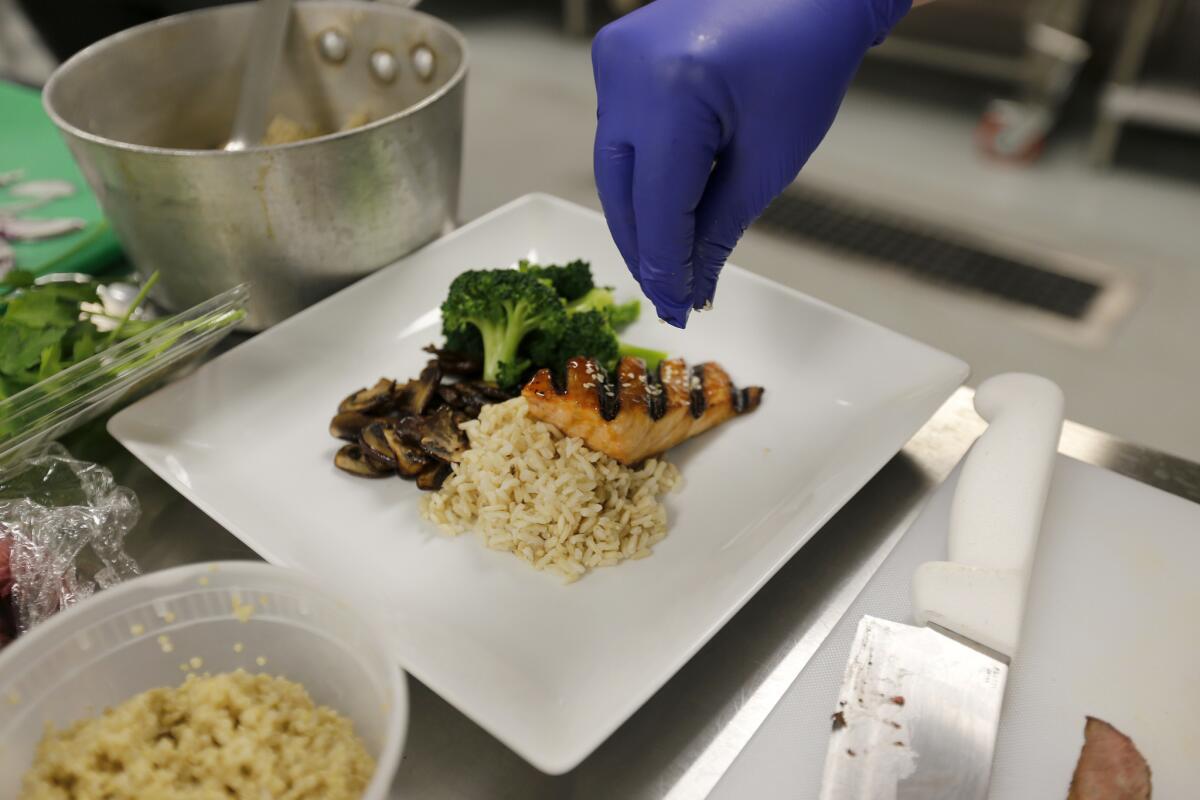
A plate of grilled teriyaki chicken with sautéed mushrooms, brown rice and broccoli is one of the meals for the elderly prepared at the L.A. Kitchen.
“Food can be viewed as more than just nourishment for the body — it can be a real agent of change.” Egger says. “There’s a sense of joy in what we do here, but there’s also sense of justice.”
The L.A. Kitchen, 230 W. 26th Ave., Los Angeles, www.lakitchen.org
More to Read
Eat your way across L.A.
Get our weekly Tasting Notes newsletter for reviews, news and more.
You may occasionally receive promotional content from the Los Angeles Times.




